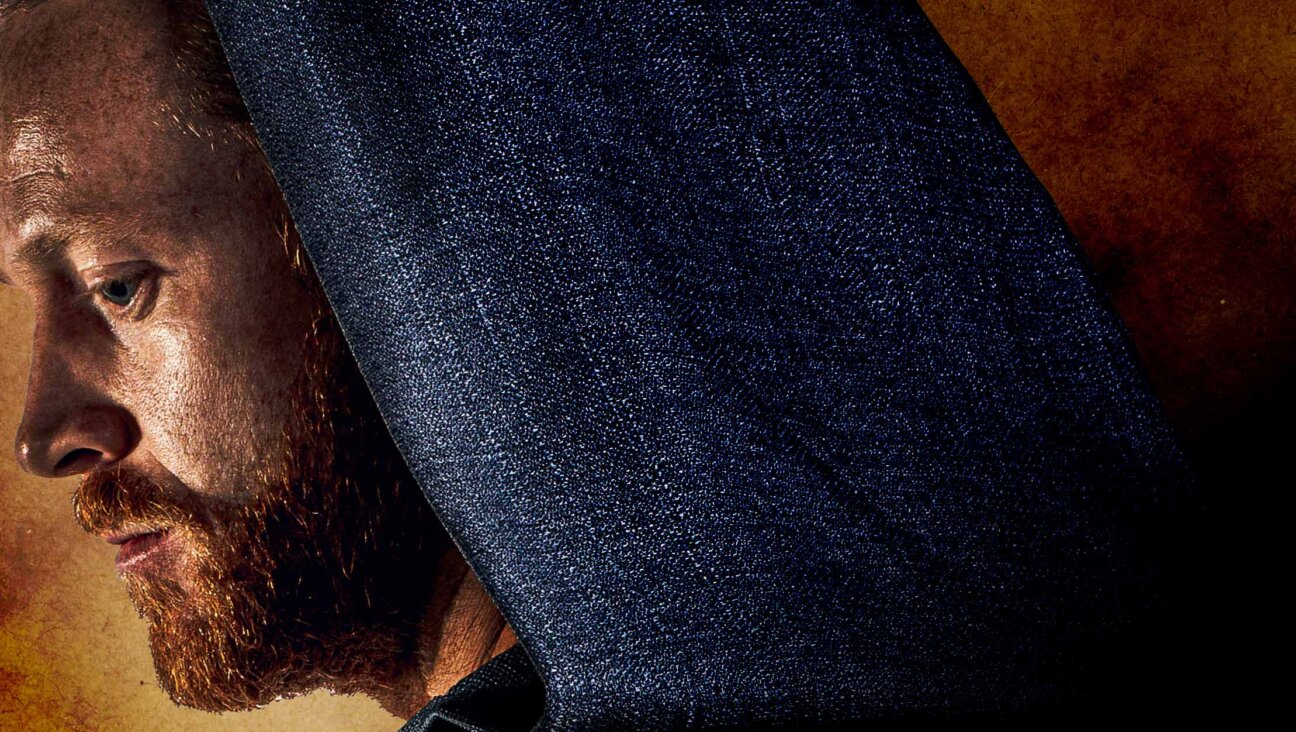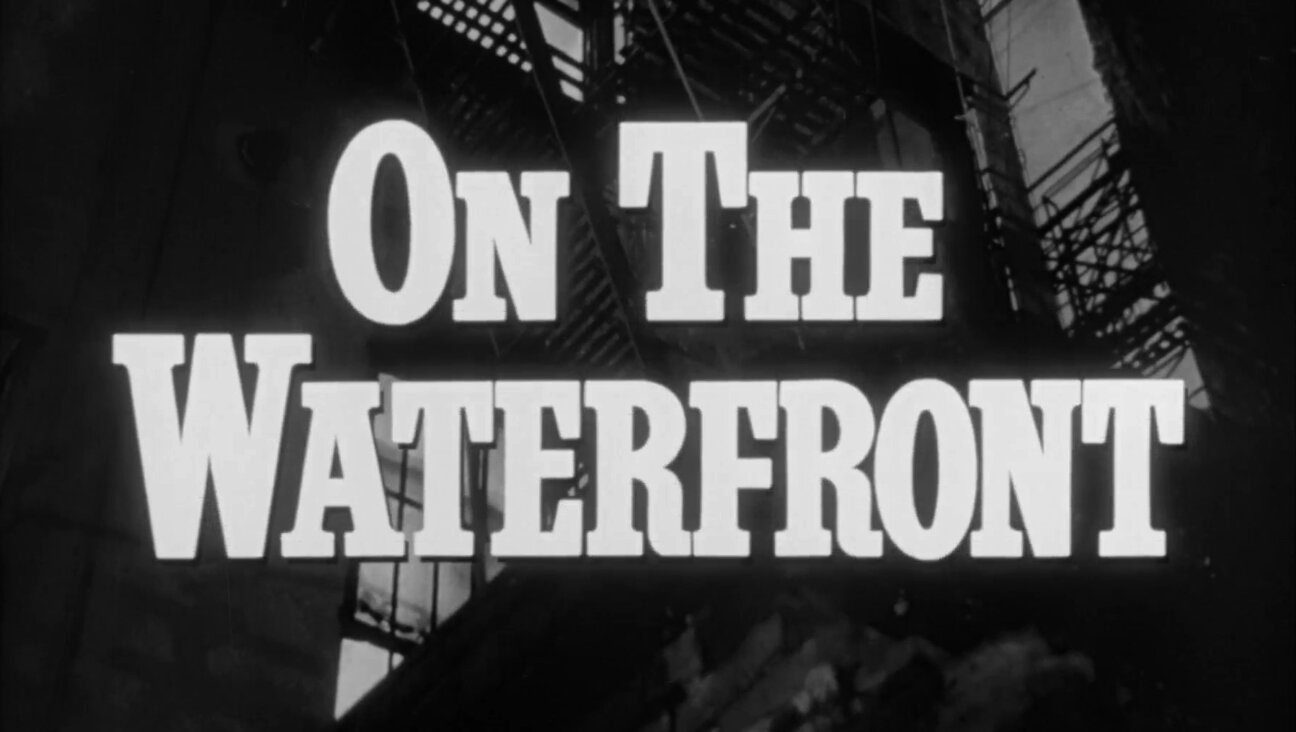Wilder Times: A Life and Legacy
‘A brain full of razor blades and a heart full of chutzpah.” That’s how filmmaker Billy Wilder described “Whiplash Willie” Gingrich, the opportunistic lawyer in “The Fortune Cookie” (1966). But those same words could well be used to describe Wilder himself. Wilder, the great American filmmaker who died in 2002, is best remembered for the caustic drag-farce “Some Like It Hot” (1959) and the somewhat more sobering “The Apartment” (1960). Often his sardonic humor has been identified as Jewish. “[Wilder] found comedy in very odd places,” said Ed Sikov, author of the biography “On Sunset Boulevard: The Life and Times of Billy Wilder.” “He makes adultery, suicide and cross-dressing comedies.”
While Wilder’s cynicism often has been linked to his ethnicity, an examination of his oeuvre reveals much wider-reaching connections to his Jewish heritage. Among these are Wilder’s socially conscious sensibility and his intellectual debt to Sigmund Freud and Arthur Schnitzler.
Such an examination is likely to start September 10, when the Museum of the Moving Image in Astoria, Queens, will present a complete retrospective of Wilder’s 26 films. This is the first complete survey of Wilder’s work in the United States since his death.
“Hollywood is very cautious these days,” noted David Schwartz, the museum’s chief curator of film, in an interview with the Forward. “Wilder was always able to be transgressive while still working within the mainstream.” Schwartz said he was inspired to mount the retrospective after observing the reactions of students to Wilder’s work during a course at Purchase College, a New York State university: “The fresh edge of cynicism and multiple layers in his films made me feel, it’s time to do a show.”
Wilder was born in Austria in 1906 to a middle-class family. He worked as a journalist, first in Vienna and then in Berlin, before becoming a screenwriter in Weimar Germany’s flourishing film industry. When the Nazis came to power, he fled to America by way of France. (His mother, stepfather and grandfather all perished in concentration camps.) In a career spanning four decades, Wilder directed some of the most enduring classics of American cinema. Yet even at Wilder’s most accessible, his films have a sharp bite and a generous helping of social criticism.
Wilder tackled taboo subjects with unnerving intensity. The filmmaker guides us through the minds of his anti-heroes by using Freud’s theories. “The Lost Weekend” (1945), his portrait of the devastating effects of alcoholism, is as psychologically acute as it is socially conscious. Ray Milland’s portrayal of a drunken writer is as total a manifestation of unbridled id as ever graced the screen. Through Milland, Wilder lays bare our terrifying potential for self-destruction as well as the possibility of redemption.
A somewhat less harrowing portrait of human desperation came in the 1960 film “The Apartment.” In that film, Jack Lemmon stars as a man who hands over his apartment to his employers night after night so that they can carry on their extramarital affairs. “Lemmon becomes the alter-ego in a lot of Wilder films,” Schwartz said. “He’s a classical schlemiel character, a loser.” Schwartz talked about the conscious contrast between the WASP world and the Jewish world, symbolized by Lemmon’s downstairs neighbor, Mr. Dreyfuss, who shows Lemmon what it is to be a “mensch.”
Wilder’s daring often took a humorous guise, as in “Stalag 17” (1953), a comedy set in a German prisoner-of-war camp. He insisted on setting the film in his native Austria, and he imported real Austrians to play the Nazi guards. Wilder’s commitment to realism aside, much of the film is a farce, complete with bumbling Nazi guards and a wisecracking Jewish prisoner.
“Wilder saw something funny about this prisoner-of-war camp,” Sikov said. “Jewish humor: You can always make a joke out of Hitler — it’s so grotesque.” Sikov suggested that “Stalag 17” might have been Wilder’s way of dealing with the guilt he felt for not getting his mother out of Austria in time to save her from the Holocaust.
Indeed, many of Wilder’s films deal with problems of identity — an issue with which he was quite familiar, having been forced out of Austria on the basis of his lineage. His characters try to reinvent, disguise and deny their identity: In “Sabrina”(1954), the title character (played by Audrey Hepburn) goes to Paris after a failed suicide attempt, planning to make herself desirable to the son of her employer; in “Some Like It Hot,”Jack Lemmon and Tony Curtis play men who try and make a getaway in drag, to escape from the Mafia; and in “Sunset Boulevard” (1950), aging starlet Gloria Swanson stars as a retired silent screen actress preparing herself for a comeback in a film that never will be made.
This preoccupation with identity might be traceable back to the writings of Schnitzler, the fin de siècle novelist and playwright who dealt with complex issues of self, often in conjunction with sex and love. One of Schnitzler’s main themes — that sex and love are often opposed — recurs in Wilder’s oeuvre, as well. One thinks of “The Apartment,” with its empty relationships of the executives at Lemmon’s company and in “Sunset Boulevard” through a manipulative and loveless affair. Wilder, a great admirer of Schnitzler, even bought the rights to “Fräulein Else,” Schnitzler’s novella about a young woman who performs a striptease to save her father from bankruptcy.
Wilder was devoted to realism, and he tried to make his films so natural that audiences would forget a director even existed — a philosophy he also applied to the proliferation of Jewish moments in his films. His scripts are speckled with Yiddish, and off-the-cuff references to Judaism are commonplace. The Jewish aspect is so unmannered that it becomes just another element of the story. But the themes of identity confusion, complex gender relations and high moral conviction are central to Wilder’s philosophy. It is this ironic and cynical view of human nature, wedded to a strong ethical backbone, that enabled Wilder to create his complex flesh-and-blood characters in stories that, while deeply critical of society’s vices, are hopeful about man’s potential for redemption.
A.J. Goldmann is a writer living in New York.
A message from our CEO & publisher Rachel Fishman Feddersen

I hope you appreciated this article. Before you go, I’d like to ask you to please support the Forward’s award-winning, nonprofit journalism during this critical time.
At a time when other newsrooms are closing or cutting back, the Forward has removed its paywall and invested additional resources to report on the ground from Israel and around the U.S. on the impact of the war, rising antisemitism and polarized discourse.
Readers like you make it all possible. Support our work by becoming a Forward Member and connect with our journalism and your community.
— Rachel Fishman Feddersen, Publisher and CEO























